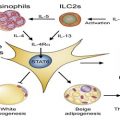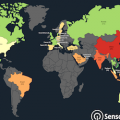PTE考生目前最大的问题之一就是练习题缺乏。除了有限的基本官方书(PLUS,Testbuilder, OG)之外就没有题了。很多英语基础不是很扎实的同学很难找到练习材料。悉尼文波雅思PTE培训学校专门为澳洲,尤其是悉尼、墨尔本的PTE考生准备了适合PTE听力阅读练习的科学60秒。各位PTE同学可以练习PTE听力中的summarise spoken text和PTE口语中的retell lecture,PTE听力口语-科学60秒-Frosty Moss练习记笔记技巧和复述。废话少说,下面开始:
听力内容:
60秒科学节目(SSS)是科学美国人网站的一套广播栏目,英文名称:Scientific American – 60 Second Science,节目内容以科学报道为主,节目仅一分钟的时间,主要对当今的科学技术新发展作以简明、通俗的介绍,对于科学的发展如何影响人们的生活环境、健康状况及科学技术,提供了大量简明易懂的阐释。
This is Scientific American — 60-Second Science. I’m Christopher Intagliata.
Walk through Times Square—you’re bombarded with advertising. And it turns out, a bumblebee might have a similar feeling, buzzing through a field of flowers. “So these flowers are these billboards, they’re advertising a good, this delicious nectar reward, and bees are very picky shoppers.” Anne Leonard, a pollination biologist at the University of Nevada, Reno.
She describes a flower field as a sort of pollination marketplace. And one way bees choose where to visit? “Bees are nectar experts. They are really good at assessing even really small differences in the sugar concentration of nectar.” They also scope out the shape and size of the flowers, and their color and scent. And now Leonard and her colleagues have discovered that bumblebees are pollen aficionados, too.
They found that out by lacing batches of cherry pollen with either table sugar or bitter quinine. And to display the pollen to bees, “We got really into it—we started 3-D printing flowers in our lab.” And for the anther—the male flower part, which presents the pollen—pipe cleaners. “So we bought out Michael’s craft store supplies of these pipe cleaners and used them in our experiments.”
Turns out bees would return again and again to the same color flower that dispensed sweet pollen, and spend more time collecting there. But when confronted with the bitter pollen? They sought a different colored flower for their very next stop. All of which suggests that, in addition to savoring nectar, bees taste pollen too—and judge flowers by it. The results are in the journal Biology Letters.
The finding means that plants have to find a happy medium: “So can you make your pollen attractive enough that the bees will collect it, but distasteful enough that they won’t collect too much of it?” And that balancing act, of carefully calibrated chemistry—it’s just one of the many transactions that plays out in the buzzing pollination marketplace. Where the object is to make a sweet profit.
Thanks for listening for Scientific American — 60-Second Science Science. I’m Christopher Intagliata.
nectar /’nektə/ n. 花蜜;甘露;[希神]神酒;任何美味的饮料
pollen /’pɒlən/ vt. 传授花粉给 n. 花粉
aficionado /ə,fɪsjə’nɑːdəʊ/ n. <西>酷爱…者;…迷
墨尔本悉尼文波PTE培训学校原创首发
更多精彩请持续关注微信wenbo_tv2





